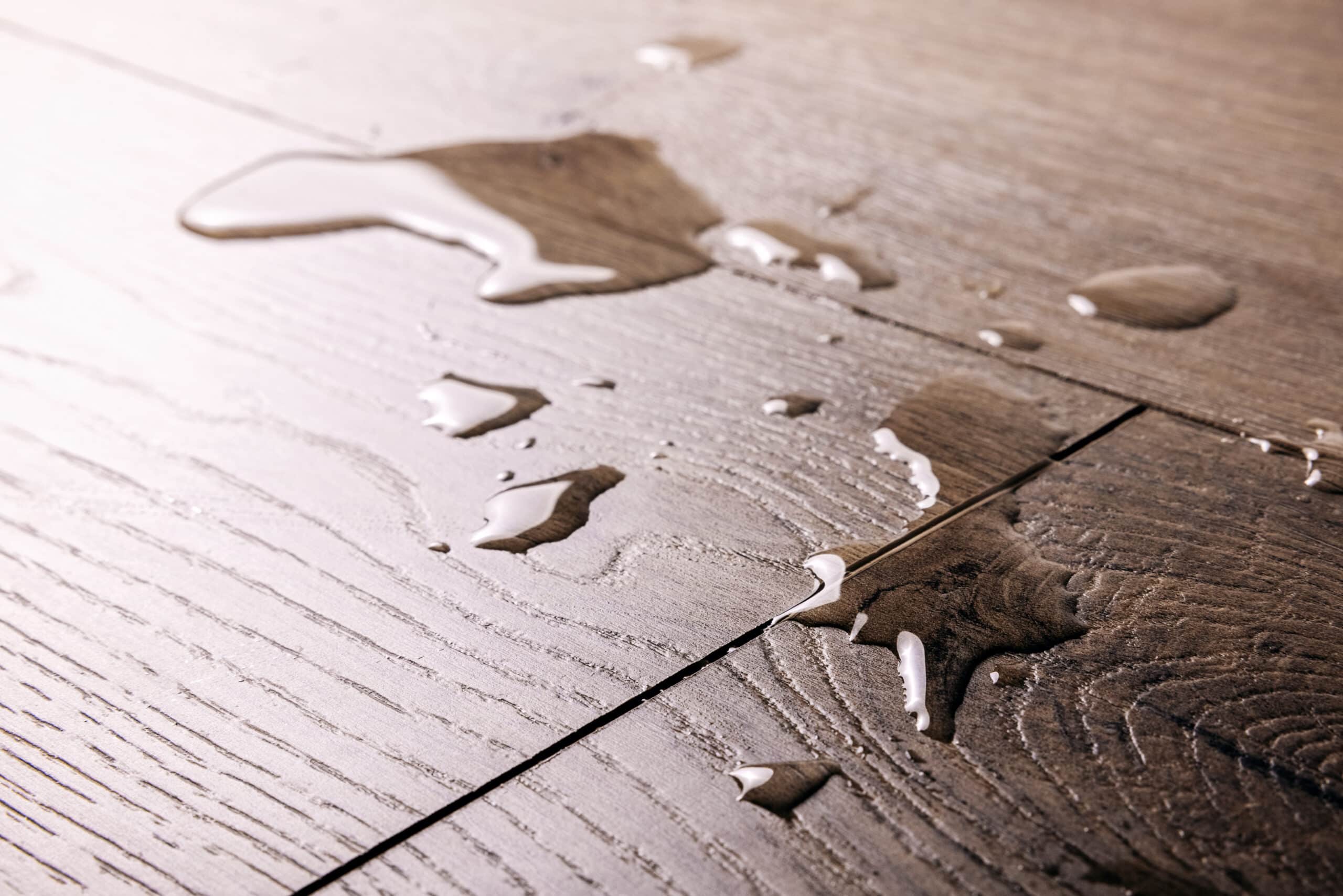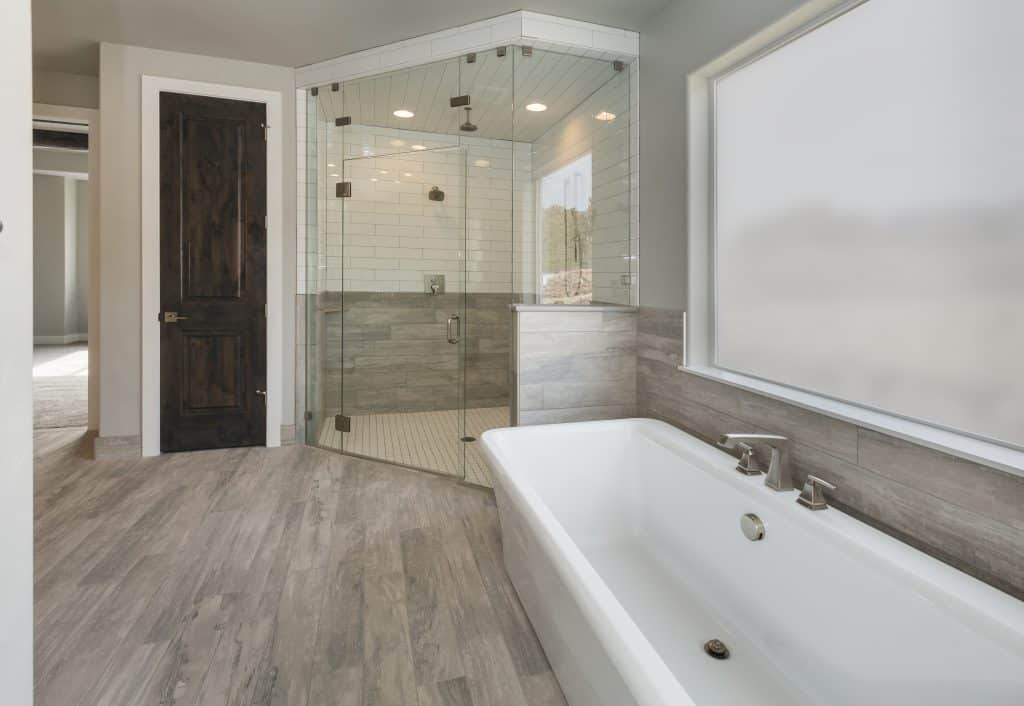
When it comes to selecting bathroom flooring materials, it’s essential to choose the right type to ensure both longevity and functionality. You’ll come across a lot of terms that describe each flooring material’s characteristics, and it’s important to understand what they mean. Two terms that are often confused with each other are waterproof watertight flooring.
Let’s break down the difference between waterproof and watertight so you can choose the right flooring for your bathroom.
Waterproof Flooring
Waterproof flooring doesn’t completely repel liquids, but it can withstand exposure to moisture without suffering damage. This type of flooring is common in areas where water and humidity are prevalent, such as bathrooms, kitchens, and basements. The key characteristics of waterproof flooring are:
- Resistance to Water Damage: Waterproof flooring materials, such as vinyl plank, luxury vinyl tile (LVT), ceramic or porcelain tile, and certain types of engineered hardwood, are engineered to resist water penetration. This means they won’t warp, swell, or get damaged when exposed to water or spills.
- Suitable for Everyday Use: Waterproof flooring is ideal for areas where you expect everyday spills and moisture. It provides a protective barrier against these common occurrences and is relatively easy to clean and maintain.
- Versatility: You can find a wide range of design options and styles in waterproof flooring, making it a versatile choice for various interior design preferences.
Watertight Flooring
As its name suggests, watertight flooring is completely impervious to water. It is used in specialized applications where absolute water resistance is paramount, such as swimming pools, commercial kitchens, industrial facilities, and outdoor settings. Here are some key features of watertight flooring:
- Absolute Water Resistance: Watertight flooring systems provide an impenetrable barrier against water. This means that no water can pass through the flooring material or the seams between sections, ensuring complete water containment.
- Specialized Materials: Watertight flooring often employs specialized materials like epoxy coatings, rubberized membranes, or custom concrete sealing systems to achieve its high level of water resistance.
- Complex Installation: Installing watertight flooring requires meticulous attention to detail to ensure that no water can seep through. It often involves a more complex and costly installation process compared to standard waterproof flooring.
Water-Resistant Bathroom Flooring Materials from Place N’ Go by SelecTech
The choice between waterproof and watertight flooring depends on the specific requirements of the space in which you will use them. If you need protection against everyday moisture and spills, waterproof flooring is the way to go. However, for environments where absolute water resistance is critical, watertight flooring systems are the best choice. Our team at SelecTech will help you choose the best Place N’ Go flooring solution for your needs. Get in touch with us at 508-583-3200 to consult with our experts today!





